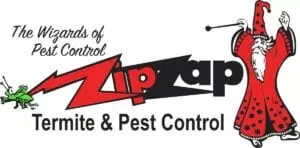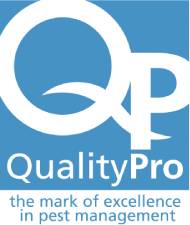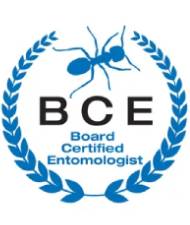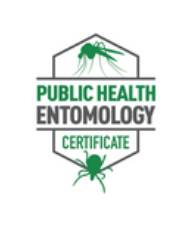Exposure to Pests in the Home Can Worsen Allergy Symptoms
The Hidden Health Hazard: Pest Allergies in the Home
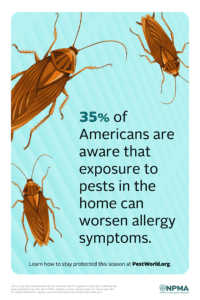
When most people encounter a pest problem, their primary concern is often the inconvenience, damage, or disease-carrying potential of the intruders. However, there’s a less obvious yet significant health risk associated with pests: the dangers of pest allergies in the home.
While it might not be the first thing that comes to mind, a substantial portion of the American population – a full 35% – is aware of the connection between pests and worsened allergy symptoms. This statistic highlights a critical issue: the often-overlooked impact of pests on indoor air quality and overall health.
The Link Between Pests and Indoor Allergies
Common household pests like cockroaches, dust mites, and rodents are notorious for shedding allergens. These tiny particles can become airborne and, when inhaled, trigger allergic reactions in susceptible individuals. This is particularly problematic for people who already suffer from allergies or asthma. The presence of these allergens can exacerbate existing conditions, leading to a range of symptoms such as sneezing, runny nose, itchy eyes, and difficulty breathing. In severe cases, exposure to pest allergens can even trigger asthma attacks.
Therefore, effective pest control is not merely about eliminating unwanted creatures; it’s also crucial for maintaining a healthy indoor environment. By preventing and controlling pest infestations, we can significantly reduce exposure to allergens, thereby improving air quality and protecting the health of household members, especially those with allergies or respiratory sensitivities.
Understanding the link between pests and allergies is essential for taking proactive steps to protect your home and well-being. Implementing preventive measures, such as regular cleaning, proper sanitation, and sealing entry points. This can help reduce the risk of pest infestations. Additionally, considering professional pest control services can provide expert assistance in identifying and eliminating pest problems and safeguarding your family’s health.
In conclusion, the hidden dangers of pest allergies underscore the importance of prioritizing pest management. It is a vital component of overall indoor health. To recognize the connection between pests and allergic reactions, visit pestword.org. They can provide additional information to take the necessary steps to create a healthier living environment for everyone.
Pest Management: The Key to Pest Allergies in the Home
Maintaining a pest-free environment is crucial for preserving indoor air quality and promoting overall health. Pests, such as rodents, insects, and dust mites, can significantly impact the quality of the air we breathe, highlighting the dangers of pest allergies in the home.
These unwanted intruders often carry allergens, bacteria, and viruses that can trigger or exacerbate respiratory issues, allergies, and asthma. For instance, cockroaches shed particles that contain allergens, leading to allergic reactions and respiratory problems. Additionally, rodents can contaminate food and surfaces with their urine and feces, spreading diseases. Dust mites, microscopic creatures that thrive in humid environments, are a common allergen and can contribute to year-round allergy symptoms.
Effective pest management helps to reduce these contaminants and improve indoor air quality. By preventing infestations and eliminating pests, we create a healthier living space for ourselves and our families. Regular inspections, proper sanitation, and professional pest control services are essential components of a comprehensive pest management plan. Investing in pest prevention not only protects our homes from damage but also safeguards our well-being by ensuring cleaner air to breathe.
DIY Pest Control vs. Professional Expertise
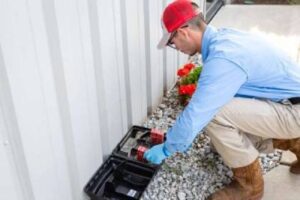
While the allure of tackling a pest problem independently might seem tempting, relying on DIY pest control methods often proves to be less effective and potentially unsafe than engaging a professional pest management firm like ZipZap Termite & Pest Control.
Limited Knowledge and Expertise with Pest Allergies in the Home
One of the primary challenges with DIY pest control is the lack of in-depth knowledge about pest behavior, biology, and effective treatment methods. Professionals possess extensive training and experience. This is evident in identifying pest species, understanding their life cycles, and determining the most suitable treatment options. This expertise ensures that the root cause of the infestation is addressed rather than merely treating the symptoms, which is crucial in avoiding the dangers of pest allergies in the home.
Incomplete Treatment
DIY pest control often targets visible signs of infestation, such as ants or cockroaches, but fails to address the underlying problem. Professionals have the tools and knowledge to locate hidden nests, entry points, and harborage areas. By thoroughly treating these areas, they can effectively eliminate the entire colony, preventing re-infestation.
Safety Concerns
Many over-the-counter pest control products contain harmful chemicals that can pose risks to human health and the environment if not used correctly. Professionals are trained in the safe handling and application of these chemicals, minimizing the potential for accidents and exposure. Additionally, they understand the importance of protecting children, pets, and the environment from harmful substances.
Ineffective Products and Equipment
DIY pest control often relies on generic products that may not be specifically designed for the pest problem at hand. Professional pest control companies have access to a wide range of specialized products and equipment that are highly effective against various pests. Furthermore, they can tailor their treatment plans to the specific needs of your property.
Time-Consuming and Labor-Intensive
DIY pest control can be time-consuming and labor-intensive, requiring multiple treatments and ongoing monitoring. Professionals can efficiently eliminate pests and provide ongoing preventative measures, saving you time and effort.
Health Risks
Pests can carry diseases and allergens that can pose serious health risks to humans and pets. By effectively eliminating pests, professional pest control helps to protect your family’s well-being from the dangers of pest allergies in the home.
Property Damage
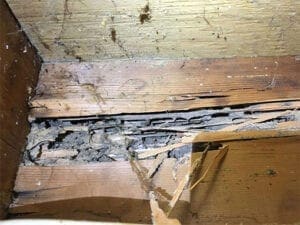
Some pests, such as termites and rodents, can cause significant damage to your property. Professionals can identify potential damage early on and implement preventive measures to protect your investment.
In conclusion, while DIY pest control may seem like a cost-effective option, the potential drawbacks in terms of effectiveness, safety, and time investment often outweigh the benefits. Engaging a professional pest management company like ZipZap Termite & Pest Control ensures that your pest problem is addressed efficiently, safely, and effectively, providing you with peace of mind and a healthier living environment.

Jeffery Preece, BCE,PHE
Jeffery Preece is the owner and technical director of ZipZap Termite & Pest Control
